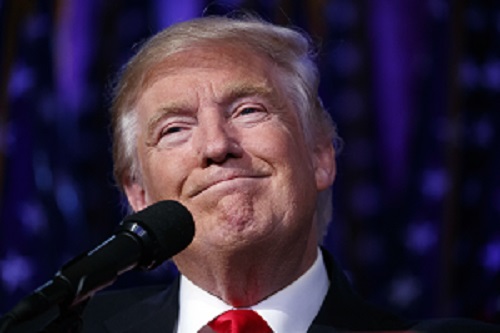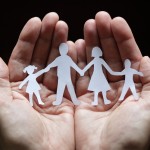
U.S. President-elect Donald Trump smiles as he arrives to speak at an election night rally, early Wednesday, Nov. 9, 2016, in New York. (AP Photo/ Evan Vucci)
Tuesday was my daughter’s 14th birthday. She wanted two things this year: To go to a Warriors game and to see a woman elected president of the United States. And here I thought the Warriors tickets were going to be hard to deliver.
On Wednesday morning when Clara rose to go to school, I had to tell her that her new president was Donald Trump. “How could this happen,” she asked in shock. I told her I didn’t know.
We hugged in silence for a long time.
How do you talk to your kids about what happened? I’m not talking about policy, I’m talking about behavior and human decency. As I wrote in my column on Sunday, “It’s not just that I wouldn’t want Donald Trump in the White House. To be clear, I wouldn’t want him in my house — certainly not alone with my wife or my daughter. . . I’ve seen too many guys like this in my lifetime, and I’ve been able to tell my kids that people like him never win. But one may be about to.” And he did.
So what do we say the next time we see a child, maybe one of our own, mock somebody with a disability or call someone a “pig?” What about those children who are concerned about the possibility of a friend at school being deported?
– Paul Gullixson
Save








